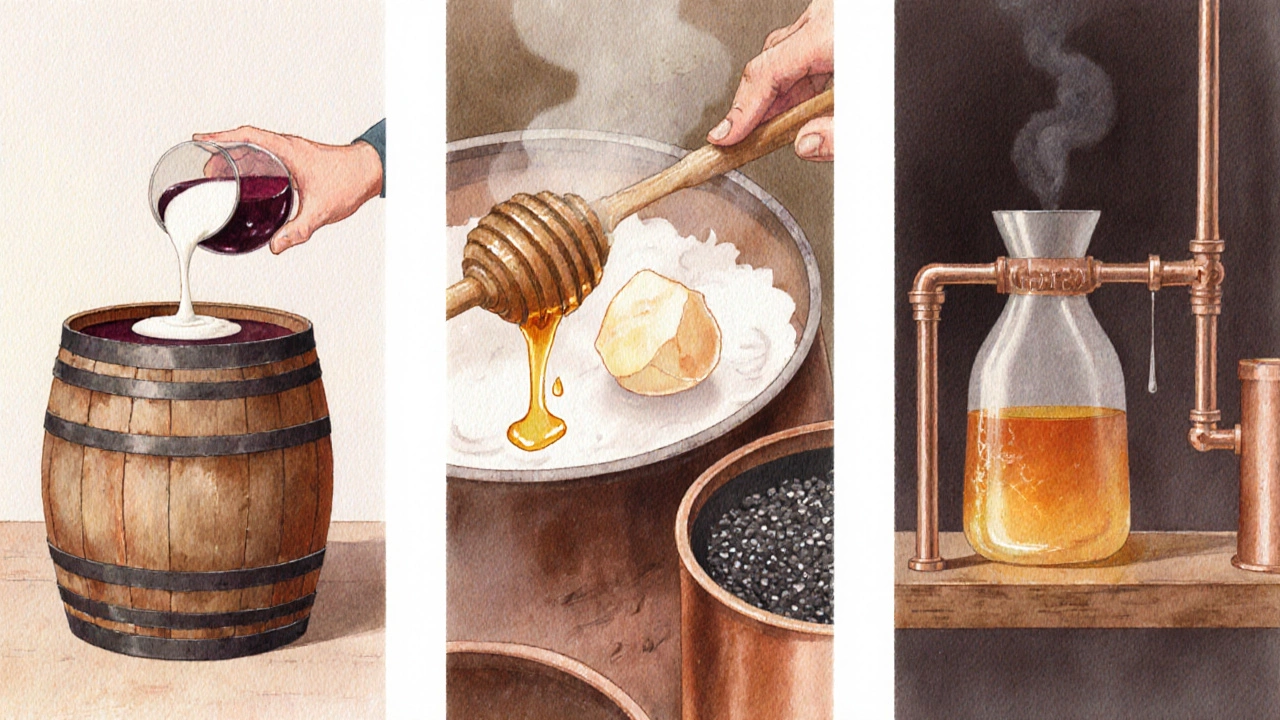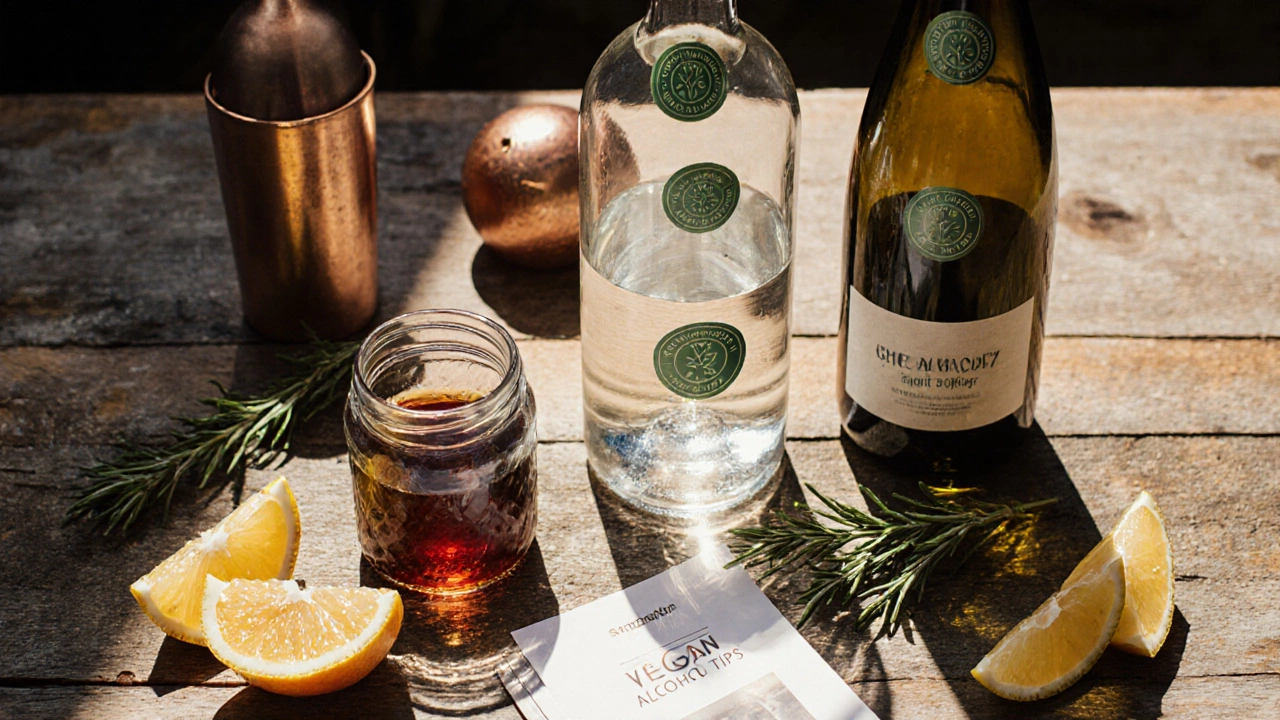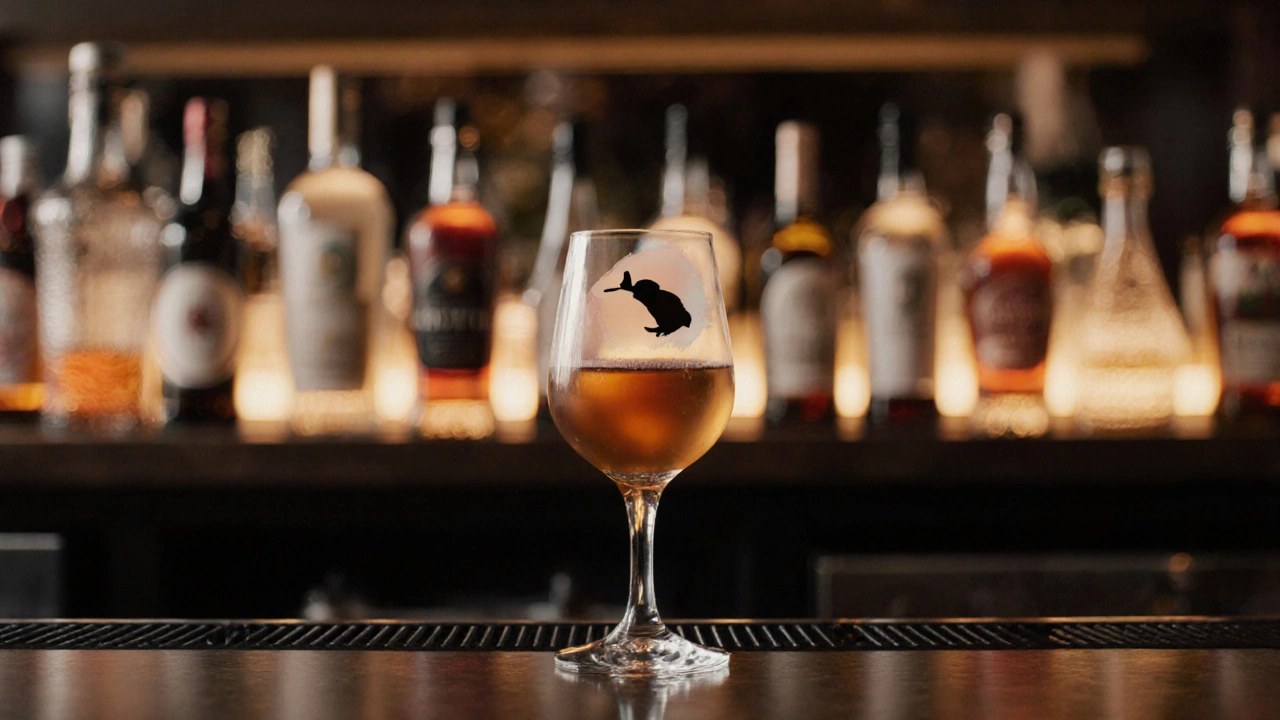Vegan Alcohol Checker
Is Your Drink Vegan?
Select your favorite alcohol type to check for animal-derived ingredients
Ever wondered if your favourite nightcap is actually vegan? It’s a common surprise that many drinks hide animal‑derived ingredients. Knowing which booze to avoid can keep your diet pure and your conscience clear.
What Makes an Alcoholic Drink non vegan alcohol?
Alcohol is a broad term for fermented or distilled beverages that contain ethanol. While the base liquid itself is plant‑based, the production process often introduces animal products. These can appear as fining agents, flavor enhancers, or even sweeteners.
The key is to look beyond the label and understand the steps where animal derivatives are used. Below we break down the most common categories.
Wine: The Hidden Use of Animal Fining Agents
Wine is made by fermenting grapes. To clear the liquid and improve stability, winemakers add fining agents. Traditional agents include:
- Isinglass - a gelatin derived from fish bladders.
- Casein - a milk protein that binds with tannins.
- Albumin - egg white used to trap particulates.
- Gelatin - pork‑derived collagen.
If a wine uses any of these, it’s not vegan. Most red wines rely on egg whites or gelatin, while some white wines use casein. In recent years, many producers have switched to plant‑based alternatives like pea protein or bentonite clay, but the change is not universal.
Beer: When Hops Meet Honey, Lactose, and Clarifiers
Beer starts with malted grains, water, hops, and yeast. Animal products can sneak in at several points:
- Honey - used in some craft brews for added sweetness.
- Lactose - a milk sugar that creates a smooth mouthfeel in milk stouts.
- Isinglass - often employed to clarify home‑brew or small‑batch lagers.
Large commercial breweries usually avoid these, but many boutique brewers experiment with dairy and honey for flavor. If you see "milk stout" or "honey ale" on the label, assume it’s not vegan unless certified otherwise.
Spirits: From Filtering to Flavourings
Spirits are distilled liquids such as vodka, whiskey, gin, rum, and tequila. The distillation itself removes most solids, but animal ingredients can appear in two ways:
- Filtration - some premium vodkas and whiskies pass through charcoal that has been treated with animal‑derived binders.
- Flavour additives - liqueurs and flavored whiskeys may contain honey, cream, or dairy‑based flavor compounds.
Plain, unflavored vodka that lists only water, grain, or potatoes is typically vegan, but once a spirit is “flavored” you need to verify the source.
Specific Non‑Vegan Examples to Watch
Here are some popular brands and products that commonly contain animal ingredients. This list is not exhaustive but gives a quick reference.
| Category | Common Non‑vegan Product | Why It’s Non‑vegan | Vegan Alternative |
|---|---|---|---|
| Wine | Chardonnay (some labels) | Finishing with casein | Organic Chardonnay (vegan certified) |
| Beer | Milk Stout | Contains lactose | Oat‑based stout |
| Vodka | Flavored Vanilla Vodka | Uses dairy‑based flavoring | Plain unflavored vodka |
| Whiskey | Honey‑infused Irish Whiskey | Honey added post‑distillation | Standard Irish Whiskey |
| Gin | Gin with cream liqueur | Contains dairy cream | Classic London Dry Gin |

How to Spot Vegan Alcohol on the Shelf
Because regulations do not require detailed ingredient disclosure for alcoholic beverages, you’ll need a few tricks:
- Look for certifications - the Vegan Society, Vegan Action, or Certified Vegan logos are reliable.
- Check the website - most brands publish vegan status on their FAQs.
- Ask the staff - bar or store employees often know which drinks are vegan.
- Use apps - VeganXpress, HappyCow, or the “Is It Vegan?” database include alcohol listings.
If you can’t find any information, assume it’s not vegan and choose a safer alternative.
Vegan Certification and Why It Matters
Certified vegan drinks undergo a strict audit that confirms no animal-derived fining agents, flavorings, or processing aids were used. The certification also guarantees that the product wasn’t tested on animals. This extra layer of trust can be worth the slight price premium, especially for frequent drinkers.
Quick Checklist for Vegan Drinking
- Is the label sporting a vegan logo?
- Does the product list any of these animal ingredients: isinglass, casein, gelatin, albumin, honey, lactose, cream?
- Is the brand known for vegan-friendly production?
- For cocktails, are the mixers (syrups, bitters) also vegan?
- When in doubt, pick plain distilled spirits or certified vegan wines.
Tips for Hosting a Vegan‑Friendly Happy Hour
Want to keep your guests happy and cruelty‑free? Here are some easy ideas:
- Stock a few bottles of certified vegan wine or sparkling wine.
- Offer plain vodka, gin, or rum with fresh fruit garnishes.
- Prepare cocktail mixers yourself using agave syrup, fresh citrus, and herbs.
- Avoid pre‑made syrups that can contain honey or dairy.
- Provide a small “vegan alcohol guide” printed for guests.
With a bit of planning, you’ll never have to explain why a drink is off‑limits.

Is wine always non‑vegan?
No. While many wines use animal‑based fining agents, an increasing number of wineries have switched to vegan‑friendly alternatives like bentonite clay or pea protein. Look for a vegan certification or check the producer’s website.
Can I drink beer if I’m vegan?
Most mainstream beers are vegan, but craft varieties may contain honey, lactose, or isinglass. Always read the label or ask the brewer. Milk‑stout and honey‑infused ales are common culprits.
Are flavored vodkas vegan?
Plain vodka is usually vegan because it’s just distilled grain or potatoes. Flavored vodkas, however, often use dairy‑based flavorings or honey. Check the ingredient list or choose a brand that specifically labels its flavors as vegan.
What animal ingredients are most common in spirits?
The main issues are filtration aids (sometimes animal‑derived) and flavor additives such as cream, honey, or dairy‑based caramel. Unflavored, single‑grain spirits are safest.
How reliable are vegan certifications on alcohol?
Very reliable. Organizations like The Vegan Society audit the entire production chain, ensuring no animal fining agents, flavorings, or testing on animals. A certified logo is a strong guarantee.

